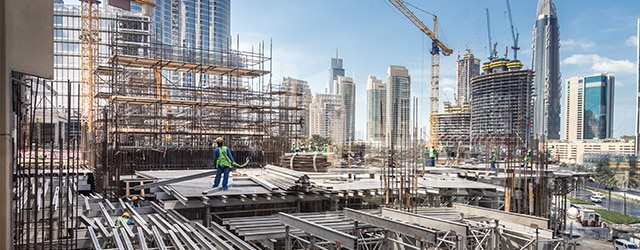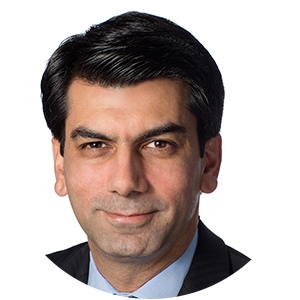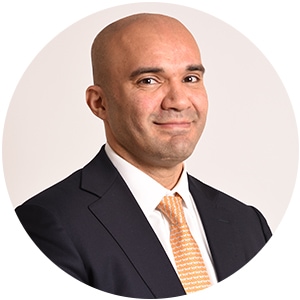The real estate investment market in the Middle East is exhibiting a resurgence and signs of maturity, with real estate investment trusts growing in popularity as an alternative source of capital.

Real estate in the Middle East is not just about luxury villas in Dubai anymore. New opportunities are opening up for real estate investments. Saudi Arabia is introducing REITs, and increasingly popular sale-leaseback agreements are helping corporations in the region to free up capital.
Dubai-based NBK Capital Partners recently rolled out a real estate investment platform focused on sale-leaseback solutions in the Middle East and North Africa (MENA). The platform is designed to help companies release capital trapped in real estate and channel it into growth initiatives, such as new business lines or mergers and acquisitions.
Yaser Moustafa, senior managing director of NBK Capital Partners, says: “We are now in the third wave of regional corporations’ use of sale-leaseback solutions. The first wave began in the wake of the global financial crisis, when companies such as Saudi retailer Al Azizia Panda United used sale-leasebacks as an alternative to bank financing to fuel growth.”
The second wave came around 2013, when educational institutions in the United Arab Emirates, including GEMS (Global Education Management Systems) Education, used them to fund the development of new campuses, he says. “Today, there is no denying that sustained low oil prices have constrained the private sector’s access to capital, whether in the form of bank financing or of capital markets,” Moustafa says. “This has brought on a third wave of sale-leaseback opportunities that is even more attractive than the ones before.”
Regional blue-chip companies in sectors such as healthcare, pharmaceuticals and logistics are seeking alternative sources of capital to fund their growth plans, he says. NBK Capital Partners is the alternative-investments unit of NBK Capital, a subsidiary of National Bank of Kuwait. “Our recipe for investing involves a dual underwriting, where we evaluate the credit risk of the tenant as well as the real estate asset itself,” Moustafa says. “By targeting existing assets with long-term leases to blue-chip corporations and focusing on recurring yield, our real estate investment strategy is designed to provide a bondlike stream of cash flows.”

SIGNS OF MATURITY
Gaurav Shivpuri, head of investment transactions in MENA at JLL, a leading real estate investment firm, says tightening liquidity in the debt capital markets has reduced the ability of companies in the region to borrow. Meanwhile, the real estate market in MENA is becoming more mature; as improved legal systems and registration of leases allow both parties to be protected on long-term transactions, similar to debt instruments, Shivpuri says.
This makes it possible for corporations with significant real estate assets to use sale-leasebacks to lower their debt burden and fund growth, resulting in a higher return on assets, he says.
“The legal framework is more advanced in Dubai, which dominates the cross-border investment flows, followed by Abu Dhabi,” Shivpuri says. “Saudi Arabia, Qatar and Oman are improving regulation of real estate markets, which should increase cross-border flows in years to come.”
Some Asian capital is invested in developing real estate in the United Arab Emirates, he adds. “What we haven’t seen enough of is the arrival of Western capital in the Middle East, largely due to the higher risk-adjusted returns these investors expect compared to buyers from within the region,” Shivpuri says.
A growing number of asset managers, pension funds and insurance companies that are entering the market prefer sale-leasebacks and custom-built assets, he says. They are seeking opportunities to invest in real estate but do not have any interest in its management, he says.
In Saudi Arabia, there could be a significant growth in these transactions, Shivpuri says. A number of private family groups in the kingdom are holding undeveloped land, which is subject to a new tax. They will be eager to develop build-to-suit assets where there is a lease commitment at the end of the development process, he says. The Saudi Capital Markets Authority now allows REITs to list on the local stock exchange, Tadawul. Riyadh Capital’s Riyadh REIT was the first to list last November, with capital of $133 million divided into 50 million units.

INVESTORS PILE IN
Ali Al-Gwaiz, CEO of Riyadh Capital, said at the time, “Income-generating REITs will give investors a unique opportunity to share the ownership of real estate with a stable financial performance and regular dividends.” REITs are required to distribute 90% of a fund’s net profitsannually. Al-Gwaiz said large numbers of commercial real estate deals with high returns could be listed, eventually making real estate the biggest investment sector in the Saudi market.
Besides deepening and diversifying capital markets, REITs can also help realize the broader goals of Saudi Arabia’s National Transformation Program (NTP) and Saudi Vision 2030, according to a report by a team headed by Fahad Alturki, chief economist and head of research at Riyadh-based Jadwa Investment.
“REITs can facilitate the participation of the private sector in developing vacant land plots and raising the supply of real estate by bringing forward alternative sources of finance for the private sector,” the Jadwa report states. “REITs will also give investors much easier access to local real estate.”
Although all forms of real estate are important to the development of the economy, one of the priorities of the Saudi government is to increase the supply of residential real estate, the report says.
Meanwhile, a survey conducted by commercial property consultants Cluttons suggests that Dubai’s real estate market will surpass London and Paris as the top choice for wealthy Gulf property investors this year. Softening prices in Dubai have made the market more attractive, Cluttons stated in a recent report. Doha, Qatar, has also risen in the rankings due to the potential for capital growth related to hosting the 2022 football World Cup.
US president Donald Trump says he turned down a $2 billion deal with DAMAC Properties in Dubai in January to avoid any conflict of interest. Weeks after his inauguration, his sons Eric and Donald Jr. were on hand for the opening of the Trump International Golf Club in Dubai. A second golf club, being built by DAMAC, is scheduled to open next year.Trump’s first foray into Dubai real estate, a proposed 62-story tower with Nakheel, a state-backed developer, was canceled following the 2009 financial crisis.



